Location Based Marketing
Location-Based Marketing Case Studies of Top Retail Brands
Thu, 03 Nov 2022 12:24:13 GMT
Speak to our Hyperlocal Expert
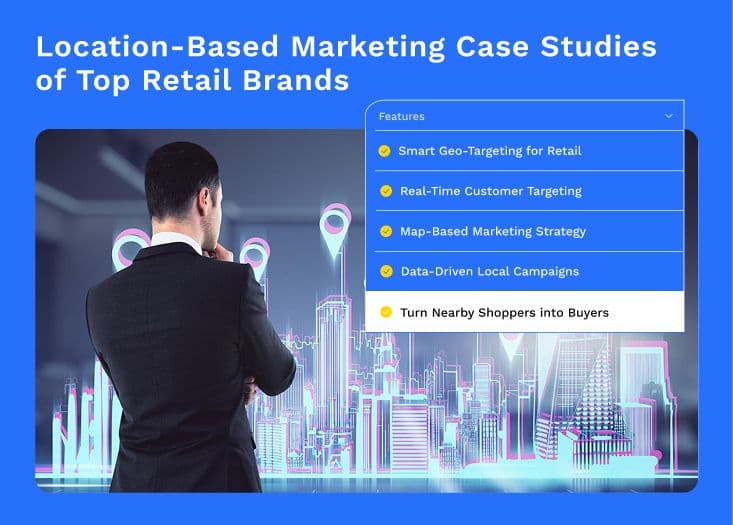
Editor’s Note: This post was originally published in Nov 2022 and was updated in Dec 2025 for accuracy and comprehensiveness.
Location-based marketing case studies will assimilate how it is a direct marketing strategy that uses a mobile device’s location to distribute content or push notifications linked with a particular area to get discount codes or available offers.
Utilising location data provided by customers, location marketing enables marketers to send only relevant information to their customers at all times. Despite Google Local Inventory Ads’ popularity, there are other ways to use location-based marketing in e-commerce. With each Location-based marketing case study, we explain how Location-based marketing words and why it is needed.
What is Location-Based Marketing?
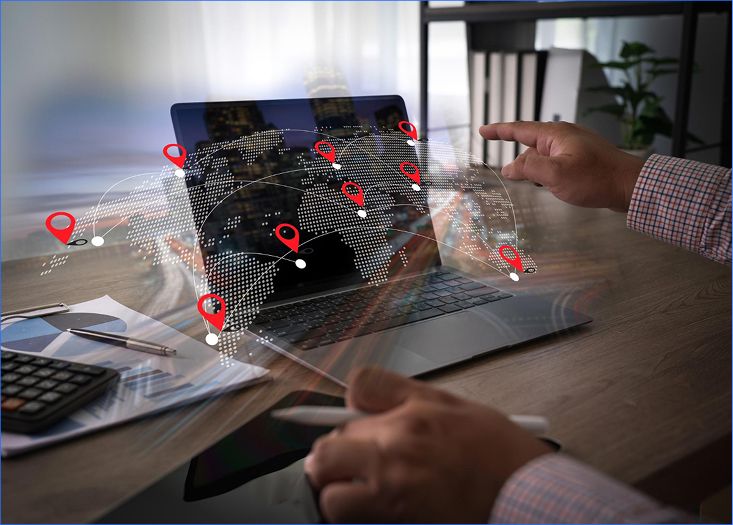
Location-based marketing is a digital approach where brands use accurate, real-time location data from smartphones, apps, GPS, or connected devices to share relevant messages, offers, or updates with users based on where they are. It allows businesses to engage customers exactly when and where it matters, creating more meaningful and timely interactions.
For retail brands, this method is especially powerful. It helps improve local search visibility, increase in-store visits, and deliver personalised experiences by promoting offers to audiences near specific locations. Because of this, many companies study location-based marketing case studies to understand how geographic insights improve conversions, footfall, and overall customer engagement.
This short video breaks down what Location-Based Marketing means and how it helps businesses reach the right audience at the right place and time.
How Does Location-Based Marketing Work?
Location-based marketing works by using a customer’s real-time location data to deliver highly targeted and relevant messages. Many location-based marketing case studies highlight how local businesses use tools like SMS alerts or push notifications to share offers and discounts with people who are nearby. This timely communication helps brands increase foot traffic and drive quick purchase decisions.
The process begins when users opt in and share their location through their smartphones or apps. With this privacy-compliant data, marketers can identify where customers are, build location-based audiences, and analyse local behaviour patterns. Using these insights, brands can deliver personalised ads and content - whether someone is close to a restaurant, a retail outlet, a grocery store, or a shopping mall.
By reaching the right audience at the right moment, location-based marketing ensures more relevance, better engagement, and higher conversions.
Key Types of Location-Based Marketing
Location-based marketing includes several methods that use geographic insights to reach the right audience at the right moment. From geo-triggered alerts to hyperlocal search optimisation, these are the key types businesses use to boost visibility and engagement.
Type of Location-Based Marketing | What It Means (Short & Simple) |
| Geofencing | Creates virtual boundaries and triggers ads when users enter or exit a specific area, helping brands reach nearby customers instantly. |
| Beacon Marketing | Uses Bluetooth beacons to send personalised offers or messages to shoppers inside or close to a store. |
| Geo-Targeted Ads | Delivers ads based on a user’s city, PIN code, or neighbourhood to improve relevance and reduce wasted spend. |
| Local SEO | Optimises Google Business Profile, NAP details, reviews, and location pages to boost visibility in “near me” searches. |
| Proximity Marketing | Engages customers within a close range using Wi-Fi, NFC, or beacons to deliver timely deals or recommendations. |
| Geoconquesting | Targets customers near competitor locations with compelling offers to win their attention and drive store visits. |
Read Also - How Location Based Marketing Works & 5 Proven Ways to Do It
Want to see how brands use hyperlocal targeting in the real world? This video breaks down innovative location-based marketing examples that show how companies stay competitive using geofencing, proximity triggers, and localised campaigns.
Key Reasons to Use Location-Based Marketing
1. Eliminates Competition
Location-based marketing helps brands reach customers at the exact moment they’re near your store or actively searching, making it easier to stand out from competitors. Hyperlocal visibility improves when supported by tools like a Hyperlocal Discovery Platform.
2. Boosts Foot Traffic
By using real-time smartphone data, brands can trigger timely offers and reminders that drive walk-ins and repeat visits. Accurate local information and store details become easier to manage with Listing Management.
3. Enhances Advertising Effectiveness
Geo-targeted ads allow brands to reach users based on neighbourhoods, PIN codes, or micro-locations, making campaigns more efficient and reducing wasted spend. This works even better when supported by organised Digital Campaign Management.
4. Creates a Better Customer Experience
Personalised notifications, SMS alerts, and WhatsApp messages help brands engage customers with relevant, location-aware content. A Unified Data Platform makes it easier to tailor these interactions using real-time insights.
5. Improves Local Search Rankings
Accurate listings, reviews, and optimised store pages help brands rank higher in “near me” searches and appear more frequently on Maps. Strong Content Optimisation ensures each location stays visible and competitive online.
How Does Location-Based Marketing Drive Conversion?
Most marketing strategies provide resources to address problems; for example, location-based marketing solutions enhance the client experience. By focusing on users at the times when they are most likely to use the app’s services, marketers can improve the user experience. Every individual interaction between a company and a customer improves their relationship.
For location-based marketing to be successful, marketers must take into account both their own location and that of their target audience. Let’s examine some examples of mobile location-based marketing. Hotels that use mobile apps should only advertise to people who are visiting or planning to visit. Users will benefit from feeling that the hotel service is concerned about them. Regular reminders could annoy people who have no interest in going to the business and damage the company’s reputation.
Benefits of Location-Based Marketing for Retail Brands
1. Improves Customer Experience
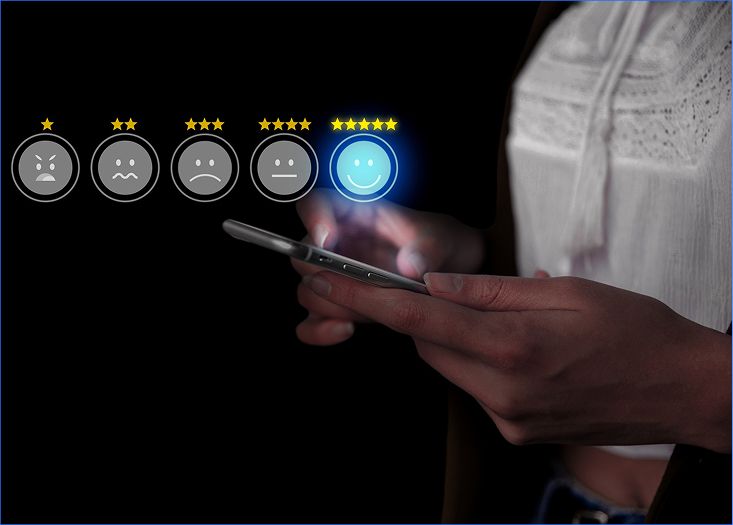
Location-based marketing enhances in-store and app interactions using real-time location data. Mobile order & pay features help retailers know when a customer is on the way, ensuring a smooth pick-up. Tools like Store Locator make it easier to deliver convenience and improve overall satisfaction.
2. Drives Engagement and Sales

Personalisation is key. By analysing customer behaviour and location history, brands can send targeted offers and recommend nearby stores. Features like Demand Generation and Digital Campaign Management help segment audiences effectively. Many location-based marketing case studies show how this drives higher conversions and in-store visits.
3. Encourages Timely Store Visits
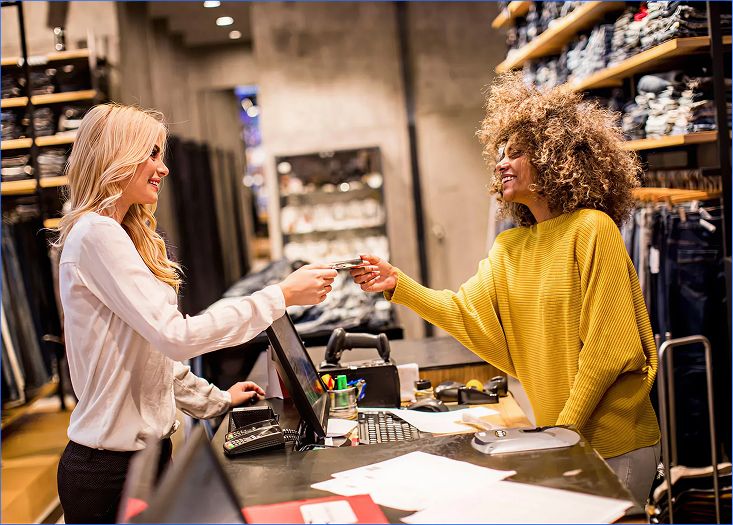
Push notifications, in-app alerts, and geo-targeted messages can persuade nearby customers to visit stores, boosting foot traffic and sales. Retailers can integrate Lead Management tools to track responses and refine campaigns.
4. Supports Retargeting and Loyalty
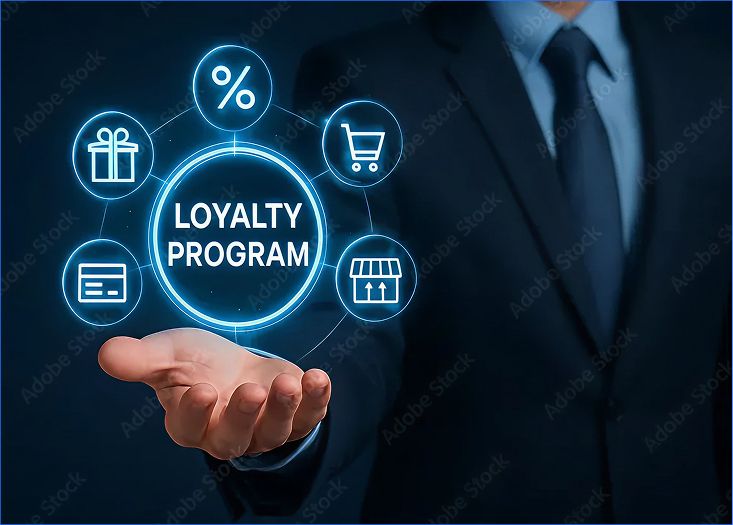
Location intelligence allows brands to personalise follow-ups and retarget customers in real time. Bridging offline and online touchpoints via SMS, email, or mobile campaigns - builds loyalty. Integrating Customer Relation Management (CRM) ensures consistent, data-driven engagement. Several location-based marketing case studies highlight how this drives repeat business.
Read Also - 10 Location Based Marketing Strategies to Compete in 2025
Here’s a quick look at how location-based marketing strengthens customer engagement and long-term retention. This video explains why personalised, location-aware interactions can significantly boost loyalty and repeat visits.
Location-Based Marketing Case Studies of Brands
Every location-based marketing case study of Sekel Tech indicates different ways in which Location-based marketing has been used for each client.
1. Mahindra Increases Its Sales Using Sekel Tech’s Local Search Ranking Listings and Local Content
About Mahindra - Mahindra & Mahindra Limited (M&M) is a Mumbai-based, multinational Indian automotive manufacturing company. It was founded in 1945 under the name Mahindra & Muhammad and changed to Mahindra & Mahindra subsequently. M&M is a member of the Mahindra Group and top most India's car producers by production.
Objective(s)
- To get ranked while searched for on a local basis.
- To make people aware of the latest offers when they search for the business.
Challenge(s)
- Mahindra was facing problems with citations that was disabling them to not rank higher.
- Lack of regional content making it difficult for the customers and unaware of current offers.
What Sekel Tech has done for Mahindra - Mahindra was seeking to improve their ranking when searched for locally as Mahindra had multiple listings because their business is present at multiple locations. Sekel Tech recognized this hurdle and used the local language of a particular area to create vernacular content to display offers.
2. Kalyan Jewellers Ranks Higher Utilising the Campaigns Created by Sekel Tech
About Kalyan Jewellers - T. S. Kalyanaraman created Kalyan Jewellers, opening the company's first jewellery store in Thrissur, Kerala, India, in 1993. First, Kalyan Jewellers boosted their presence in the states of Tamil Nadu, Kerala, Karnataka, Andhra Pradesh, and Telangana in South India. In 2012, they opened a store in Ahmedabad, Gujarat, to further their reach outside of South India. The business has also established "My Kalyan," a customer care centre, which provides services including Kalyan Gold Purchase Advance Scheme, Gold Insurance for gold jewellery, and advance booking for wedding purchase.
Objective(s) - To make customers feel like they are being sent content on a one on one level instead of as a whole.
Challenge(s)
- Difficulty in being able to track so many customers.
- Sending multiple customers messages on a personalised level.
What Sekel Tech has done for Kalyan Jewellers - Kalyan Jewellers wanted to create content and share it on a one-on-one level to get more traction on available products and offers. Sekel Tech provided Kalyan Jewellers with first-party data in order to know the NAP data of their customers. Sekel Tech also created a WhatsApp campaign for Kalyan Jewellers in order to send multiple people messages and videos.
3. VLCC Microsite Was Created Under Sekel Tech to Rank Higher in Terms of Local Searches
About VLCC - Mrs. Vandana Luthra established the VLCC in 1989, VLCC opened a centre for beauty and slimming services. Today, it is well known for its extensive selection of wellness and beauty goods and services and enjoys a high degree of customer confidence. Currently, the VLCC Group has 330 locations spread throughout more than 150 cities and 14 countries in Asia and Africa, including India, United Arab Emirates, Saudi Arabia, Oman, Bahrain, Qatar, Kuwait,Kenya, Sri Lanka, Bangladesh, Nepal, and Singapore.
Objective(s) - VLCC wanted to rank in a specific way when searched for locally.
Challenge(s) - VLCC found it difficult to rank using organic SEO and Google my business.
What Sekel Tech has done for VLCC - VLCC wanted to rank in a specific manner using certain keywords which was challenging for them. Sekel Tech helped them to rank higher locally using microsites. These microsites existed under Sekel Tech’s main page to give them the desired ranking results under particular keywords.
4. Blackberry Was Finding It Difficult to Scale in Terms of Segmentation
About Blackberry - The Gurgaon-based Blackberrys, which are made by one of India's top seven suit manufacturers, Mohan Clothing Company Pvt. Ltd. started by Nitin and Nikhil Mohan, brothers. The company, which in just the previous two decades has generated a revenue of Rs. 800 crore from domestic retail, also boasts a fantastic manufacturing setup with four facilities in the Udyog Vihar area that produce 3,60,000 jackets and 14,00,000 pants annually. The company began by making jackets and blazers, unlike many businesses that first produced trousers before switching to suits.
Objective(s) - Boost product discovery and draw in new customers
Challenge(s)
- Scalable contextual communication with granular segmentation.
- Segment-based, timely communication across mediums.
What Sekel Tech has done for Blackberry - Blackberry was having trouble onboarding new users, but the Sekel Tech team was able to provide automated welcome messages that were highly personalised across a variety of channels, including email, web push, and push notification and gave its new customers immediate value. The company was having trouble keeping track of customers' browsing habits so it could send them event-based advertising and persuade them to add items to their basket. Sekel Tech offers highly customised mobile push notifications to customers with information based on the products they have previously browsed and other driving app usage and purchases as a result.
Location-Based Marketing: Trends & Future Insights for Retail
1. AI-Driven Targeting - Retailers are using AI to analyse real-time location and behavioural data, delivering highly relevant offers that drive conversions.
2. Hyperpersonalisation - Customers expect tailored experiences. First-party data helps brands send personalised notifications, promotions, and recommendations while maintaining privacy compliance.
3. AR/VR + Location Triggers - Augmented and virtual reality combined with location-based triggers create engaging, immersive in-store and nearby shopping experiences.
4. Retail Footfall Prediction - Predictive analytics helps retailers anticipate busy periods, optimise staffing, and plan marketing campaigns around high-traffic times.
5. Digital Twins for Retail Mapping - Virtual replicas of stores and neighbourhoods enable precise geotargeting, better in-store navigation, and smarter campaign planning.
6. Multi-Location Strategy Support - Integrating tools like Listing Management or Store Microsites ensures consistent visibility across locations while supporting advanced location-based marketing strategies.
By following these trends, retailers can enhance foot traffic, improve customer engagement, and strengthen brand loyalty while staying ahead in location-based marketing.
Even industry experts agree that a customer’s location strongly shapes their intent and behaviour - an insight highlighted in an Economic Times article on why location matters in modern e-commerce.
Frequently Asked Questions (FAQs)
1. What are the challenges of location-based marketing?
The challenges of location-based marketing include privacy concerns, accuracy and reliability of location data, reaching the right audience, and ensuring relevancy and personalization of marketing messages.
2. Who uses location-based marketing?
Location-based marketing is used by businesses and marketers who want to target customers based on their location, behaviour, and interests, as well as by location-based apps and services.
3. How effective is location-based marketing?
Location-based marketing can be very effective when executed properly, as it allows businesses to reach customers at the right place and time, increase foot traffic, and improve customer engagement and loyalty.
Conclusion
This blog on location-based marketing case studies demonstrates how top retail brands leverage real-time location data, personalised campaigns, and tools like listing management, store microsites, and digital campaigns to boost local visibility, drive foot traffic, and enhance customer engagement. By studying these case studies, businesses can understand how to implement effective location-based strategies, optimise multi-location performance, and deliver meaningful, timely experiences that increase conversions and loyalty.
Take Advantage of Sekel Tech’s Location-Based Marketing
Location-based marketing can be complex, and without the right approach, even the best strategies may fall short. Sekel Tech simplifies this by providing powerful solutions, including local listings, store visibility, and first-party data management, helping businesses reach their audience effectively. By leveraging these tools, brands can optimise local search rankings, manage reviews, and expand their presence with minimal effort, ensuring a seamless and results-driven marketing experience.
Read More Blogs -
1. Best Location Based Marketing Tools for Your Brand in 2025
2. Top 10 Location Based Marketing Examples in Retail Sector
Share
Similar Blogs
Loved this content?
Sign up for our newsletter and get the latest tips & updates directly in your inbox.
There’s more where that came from!